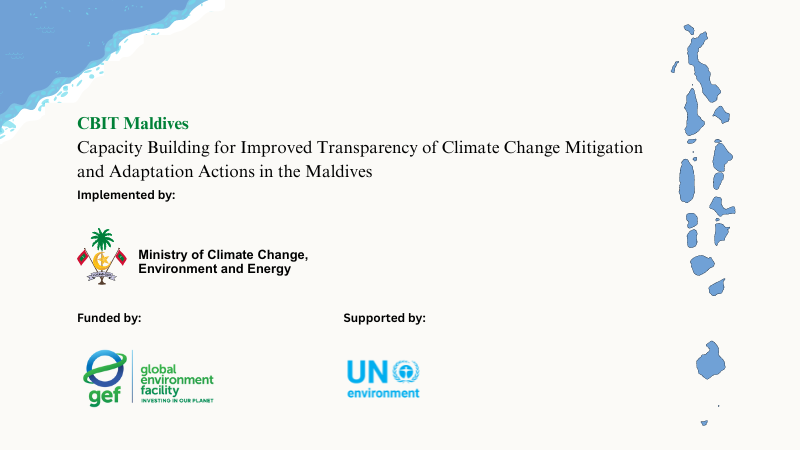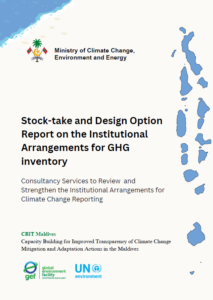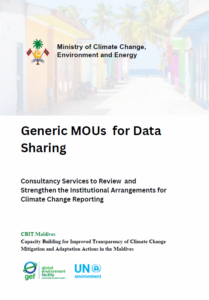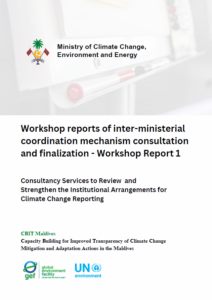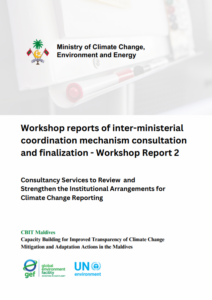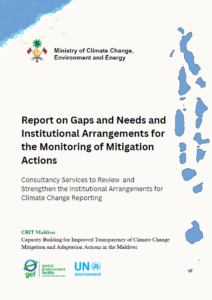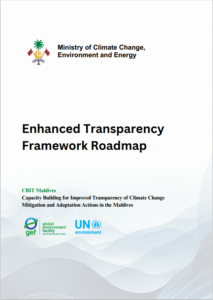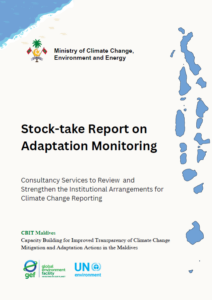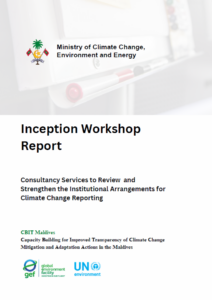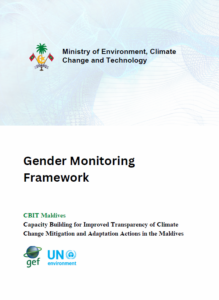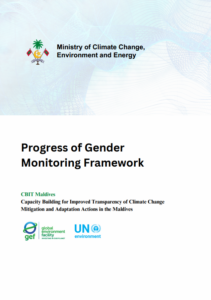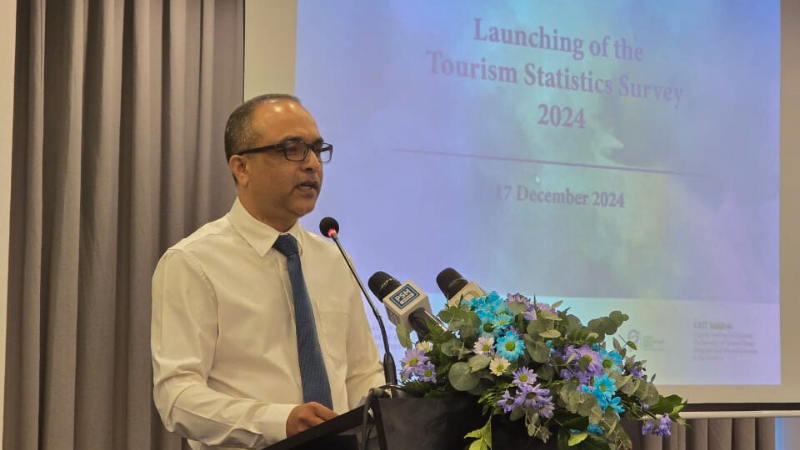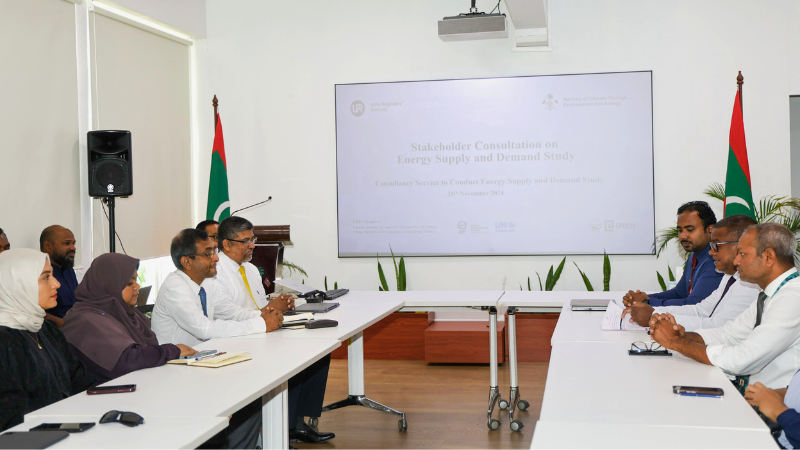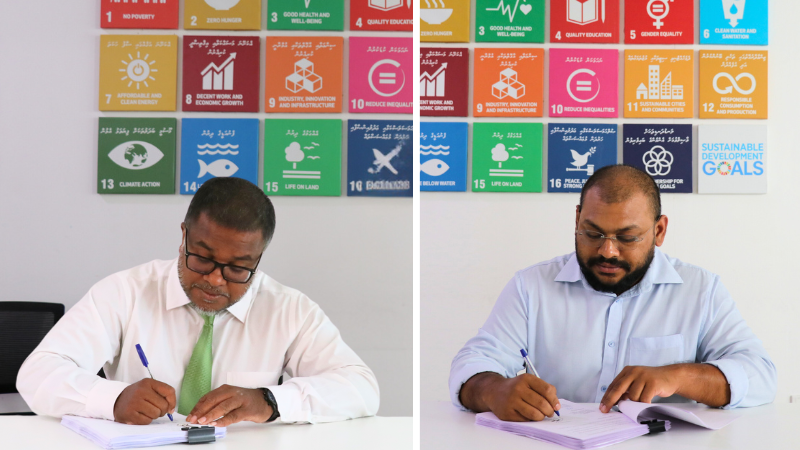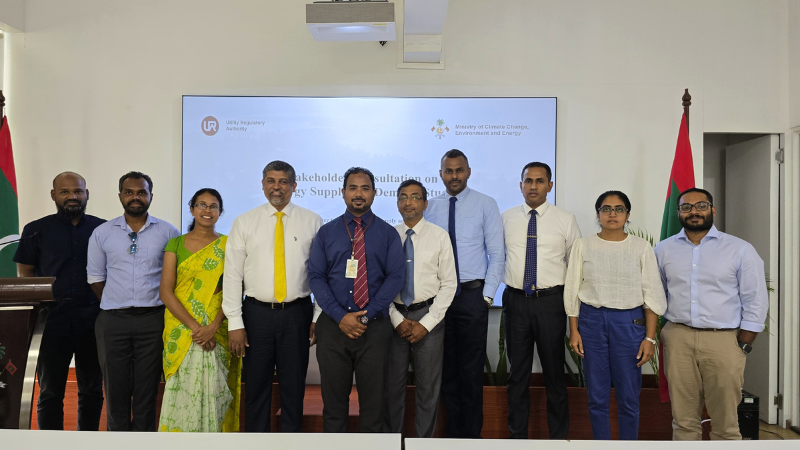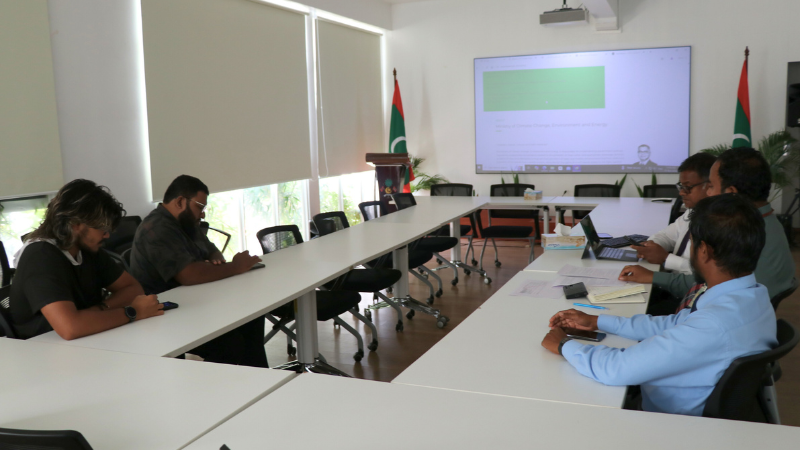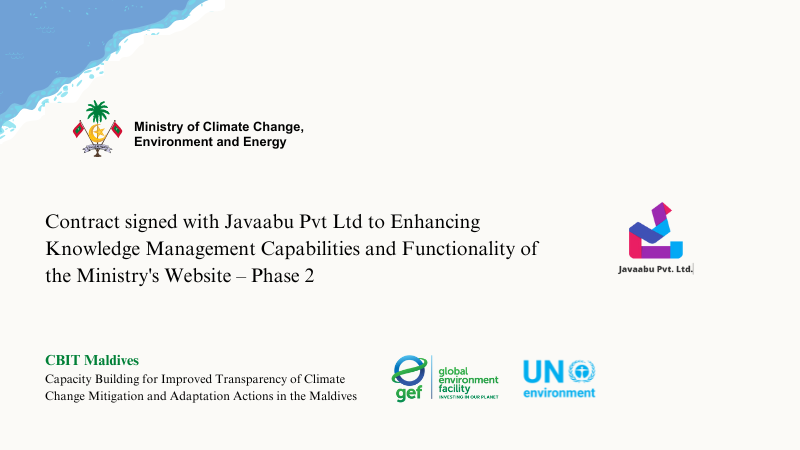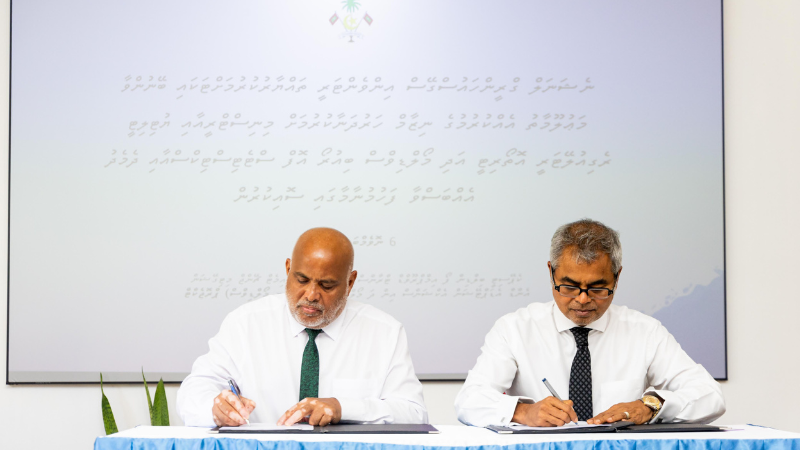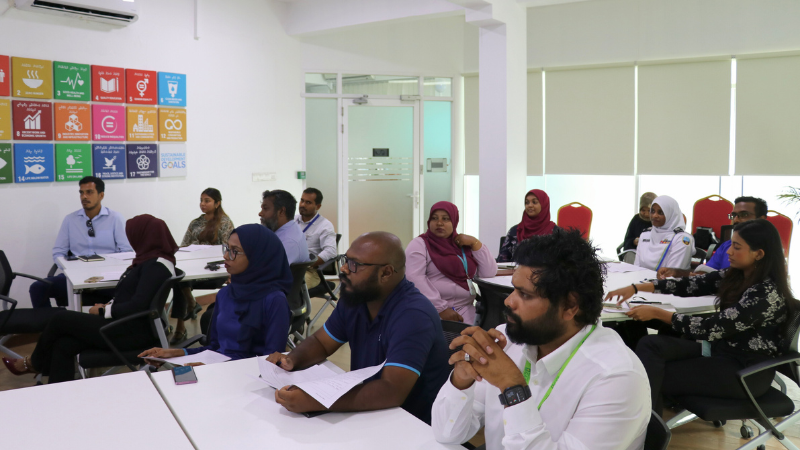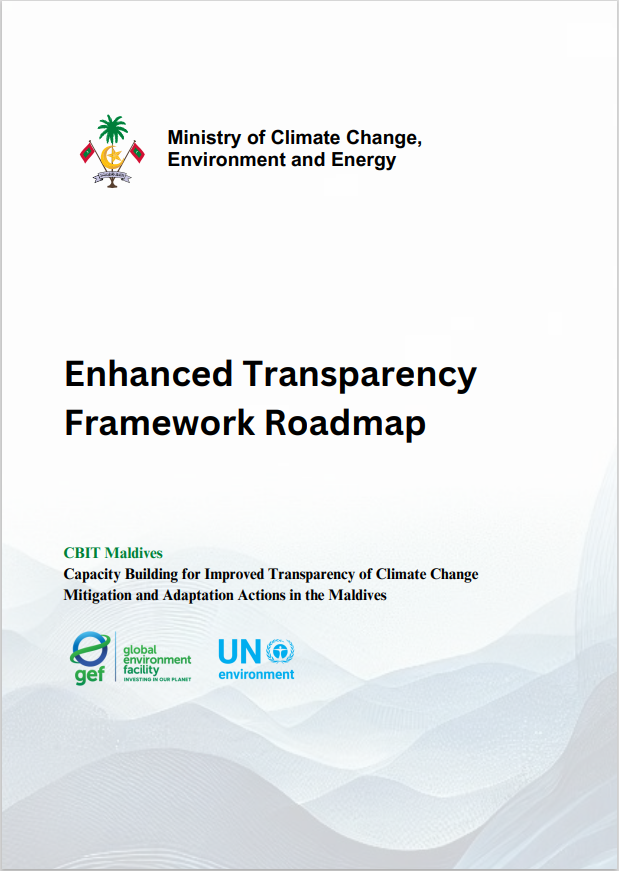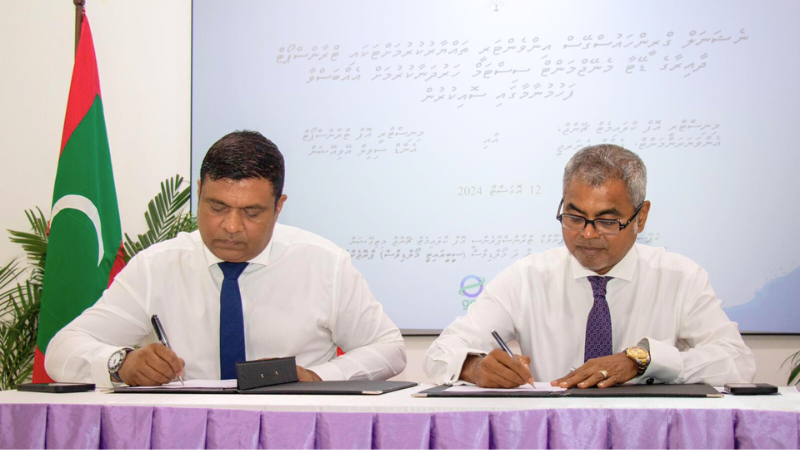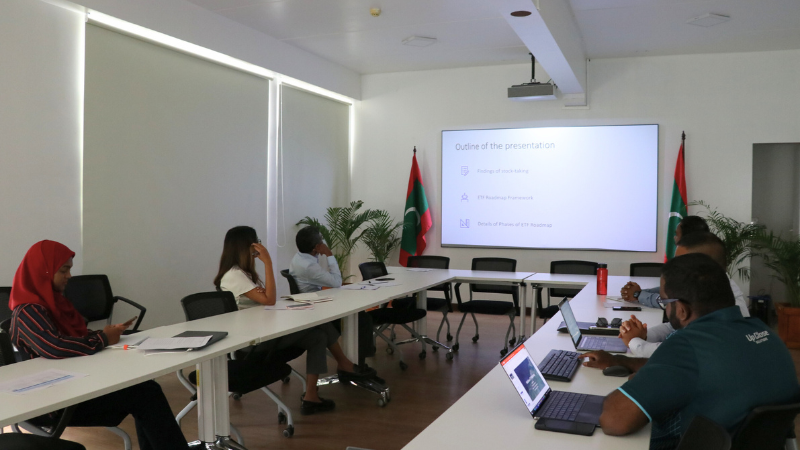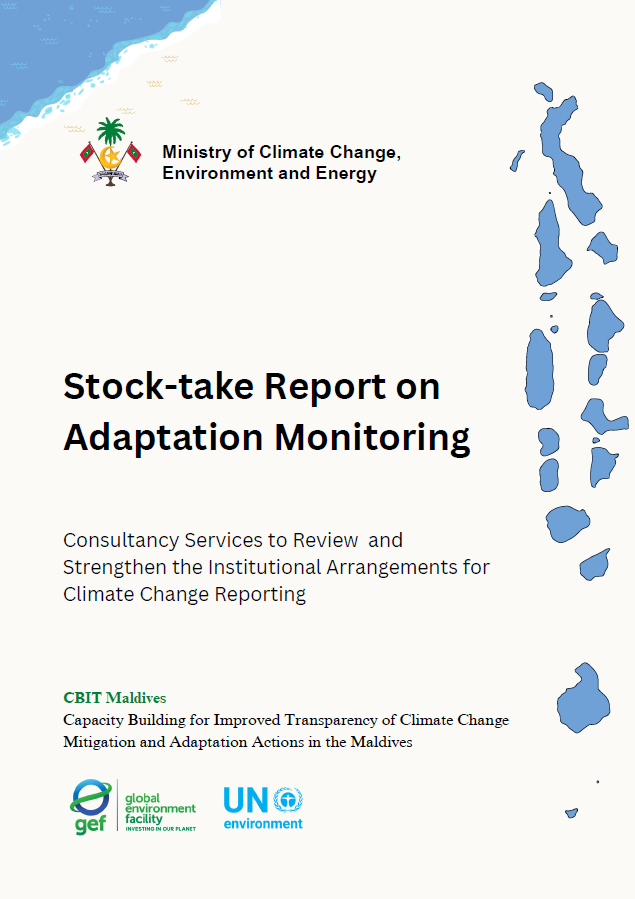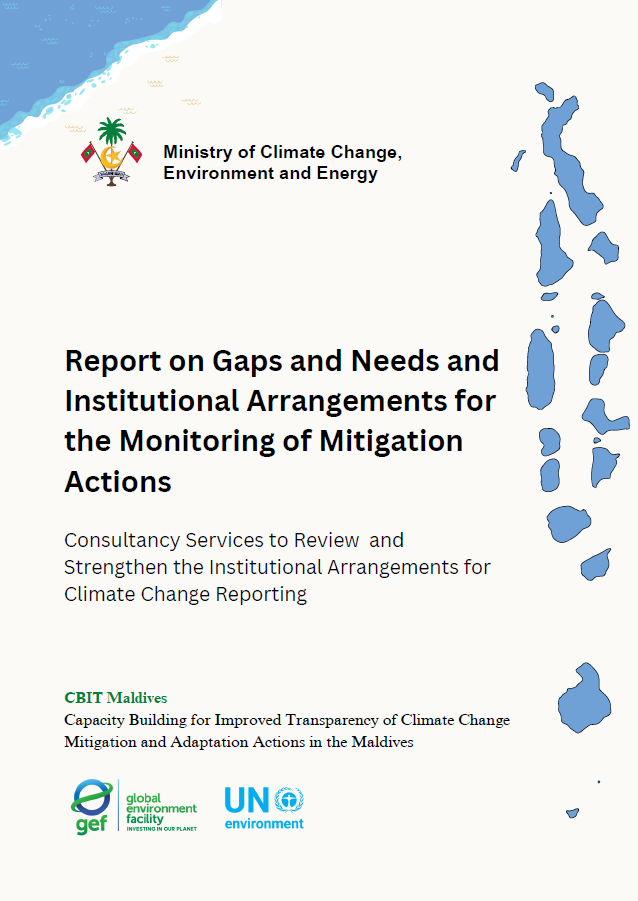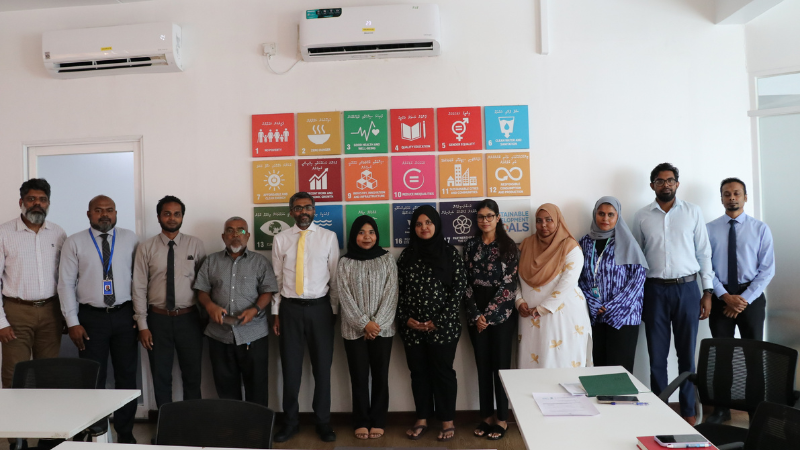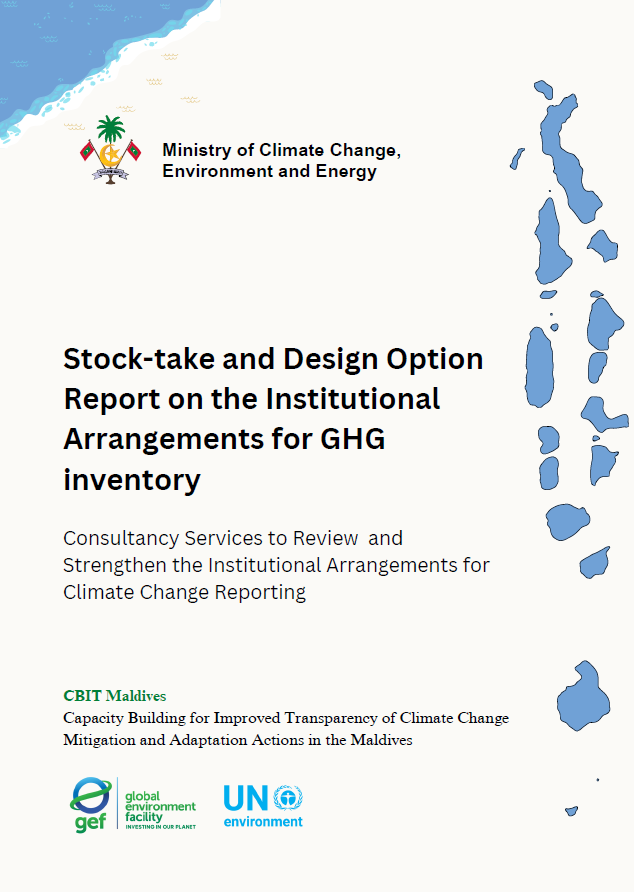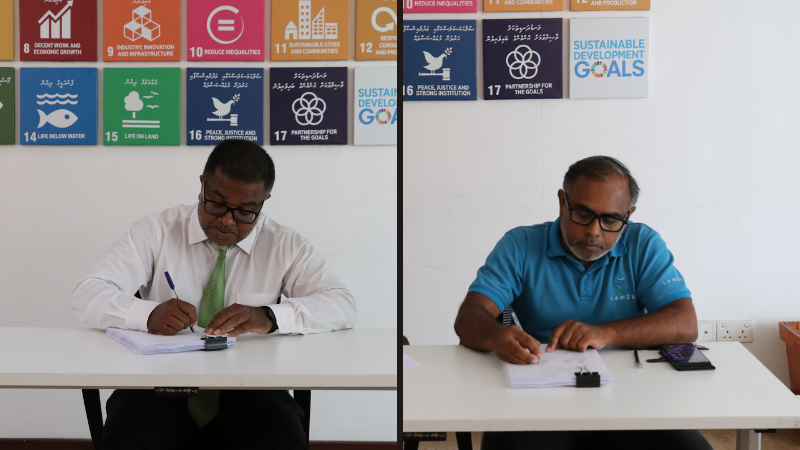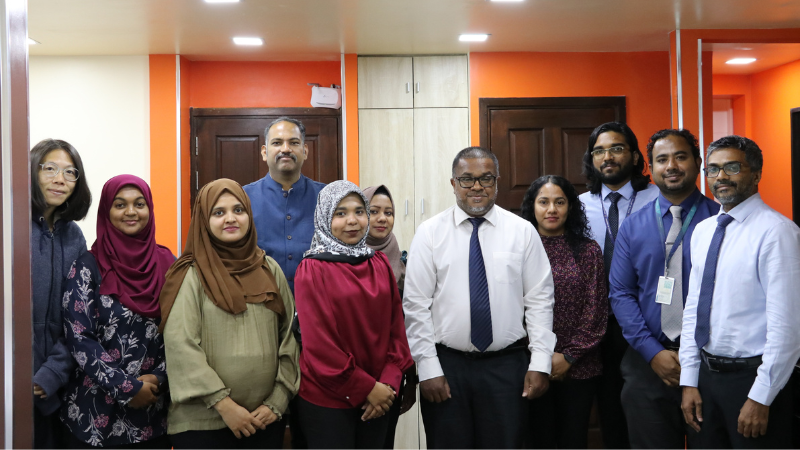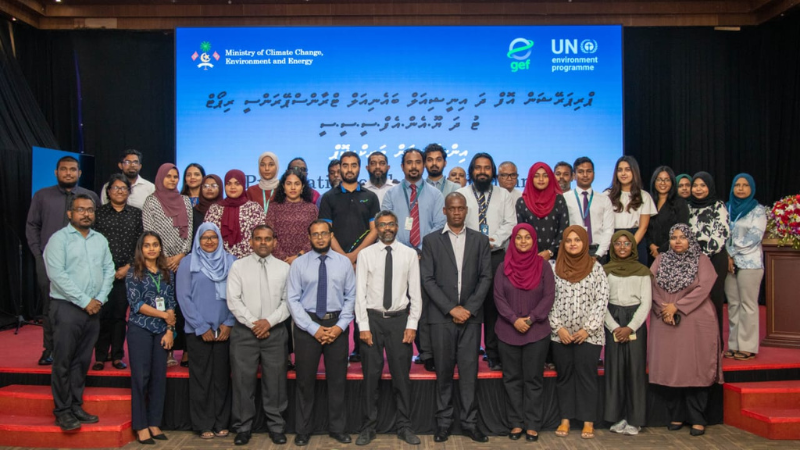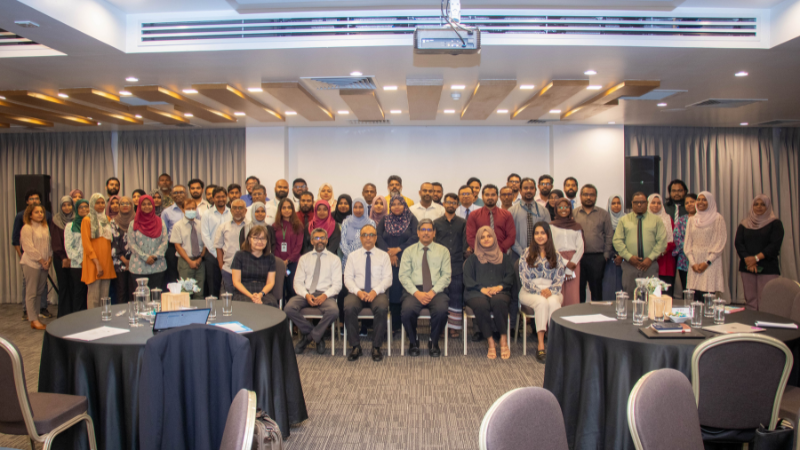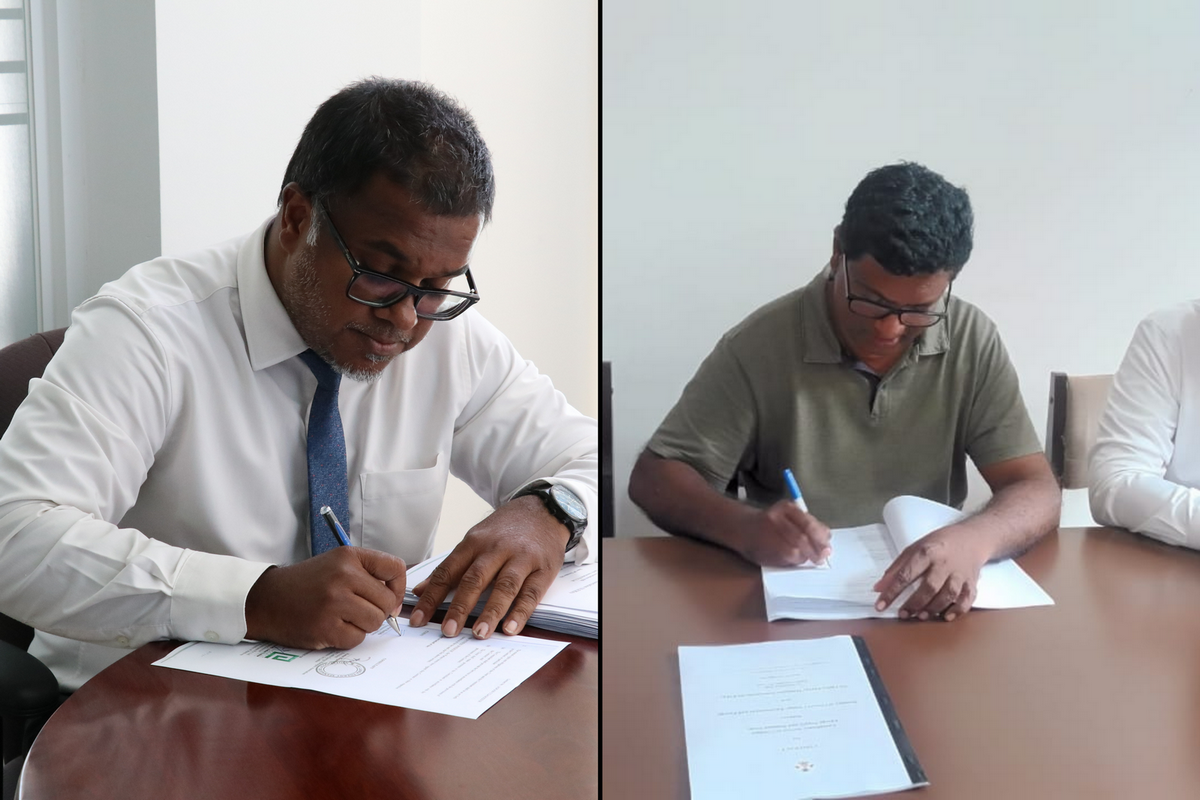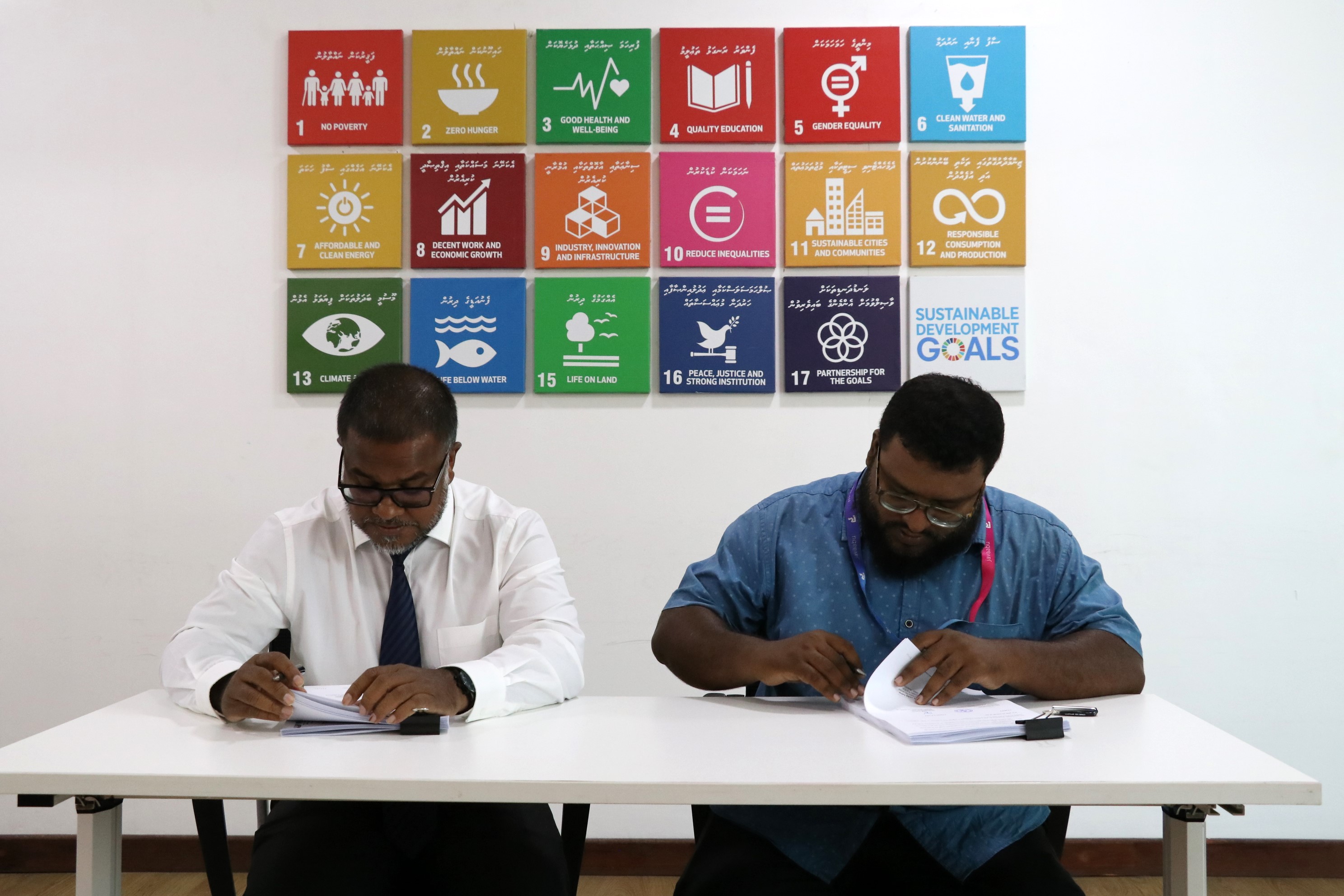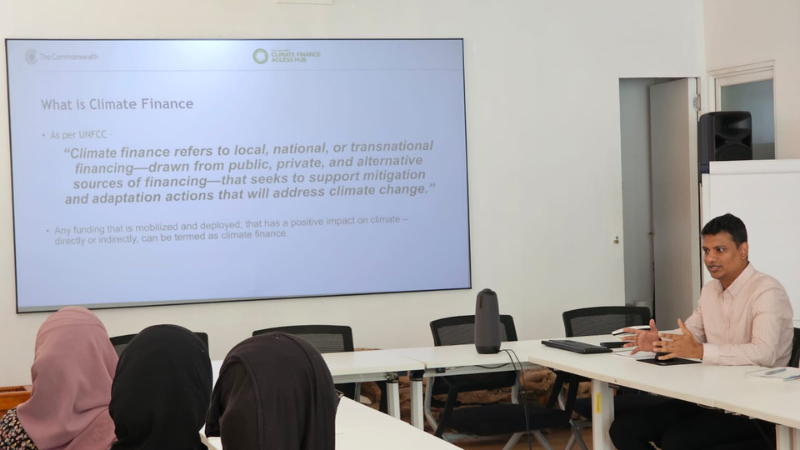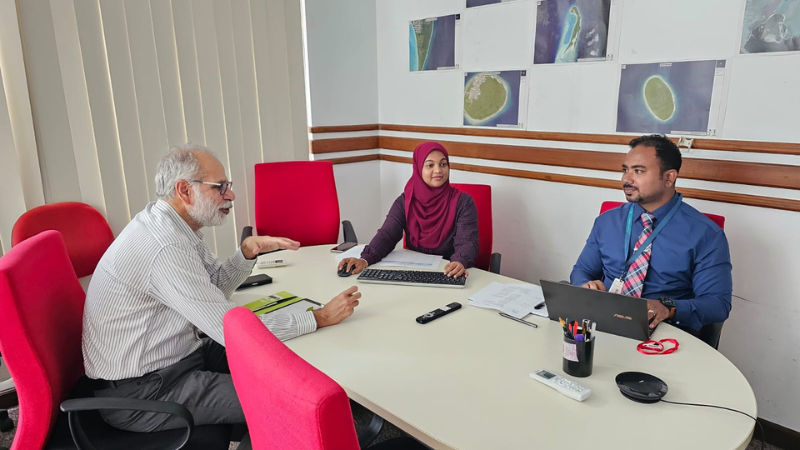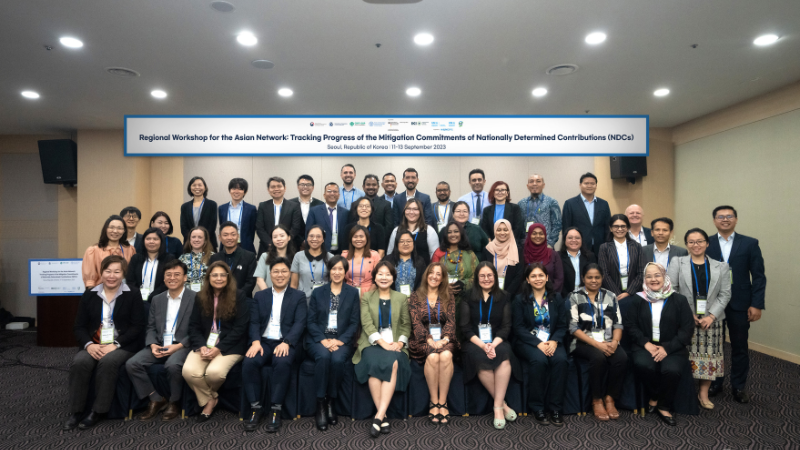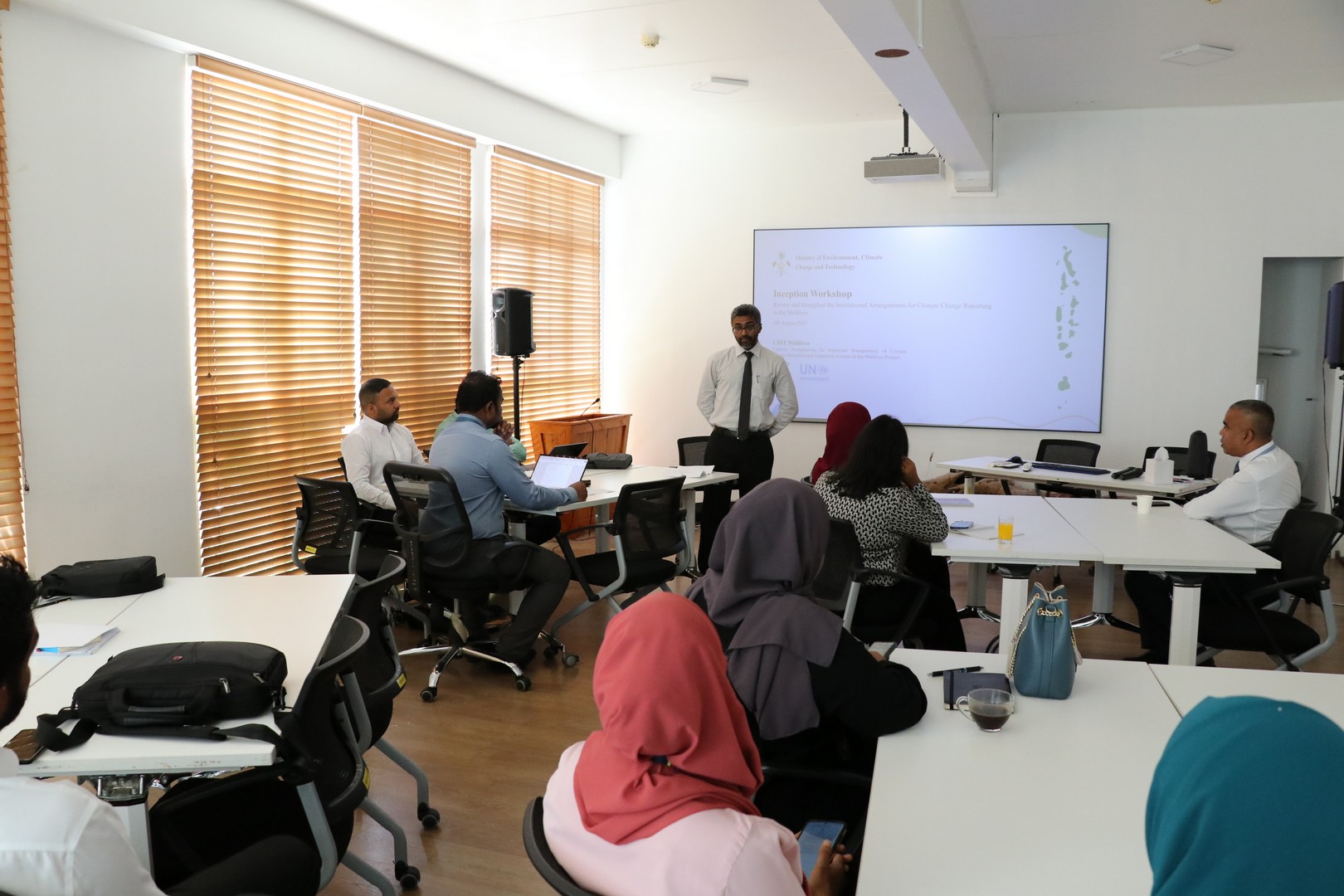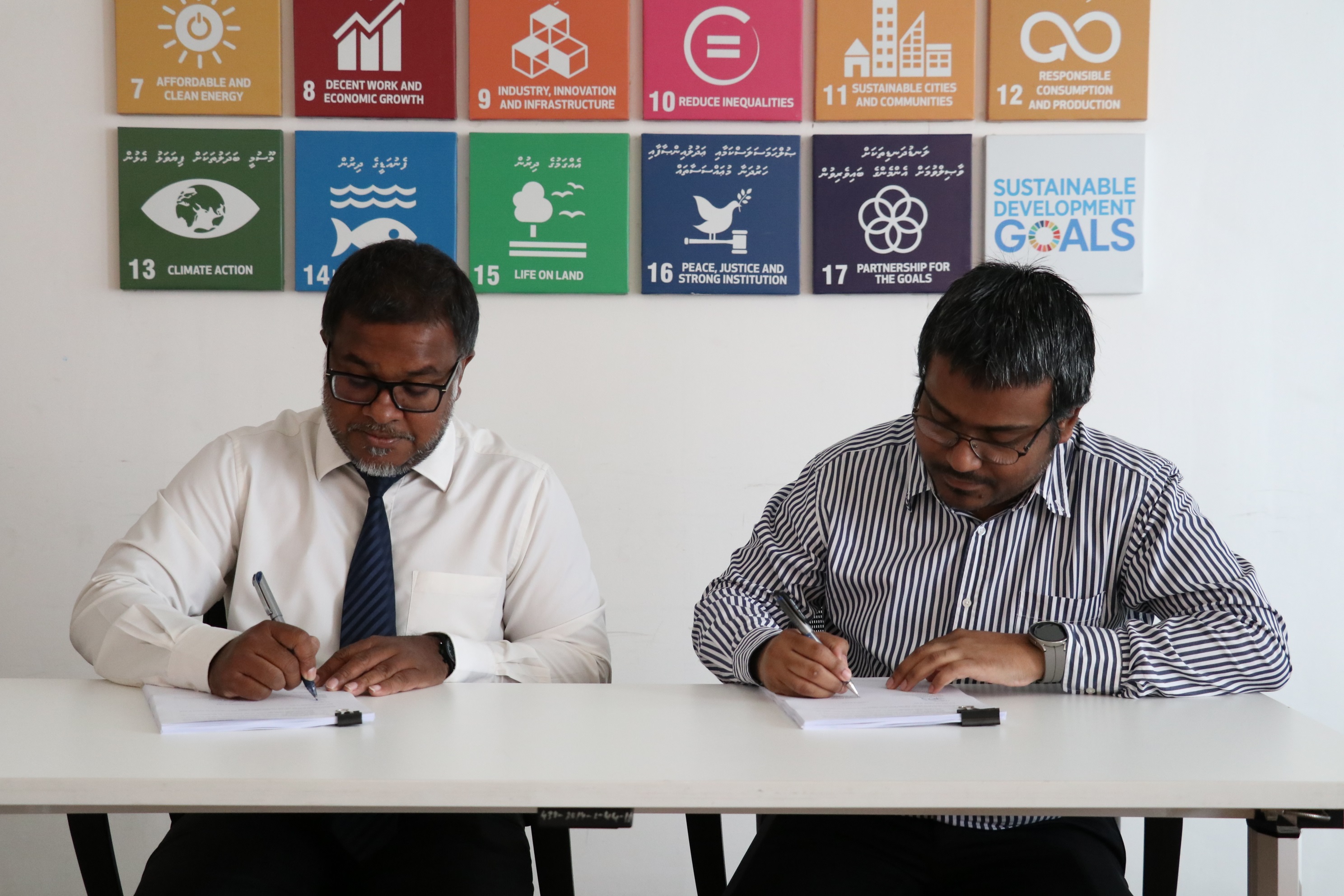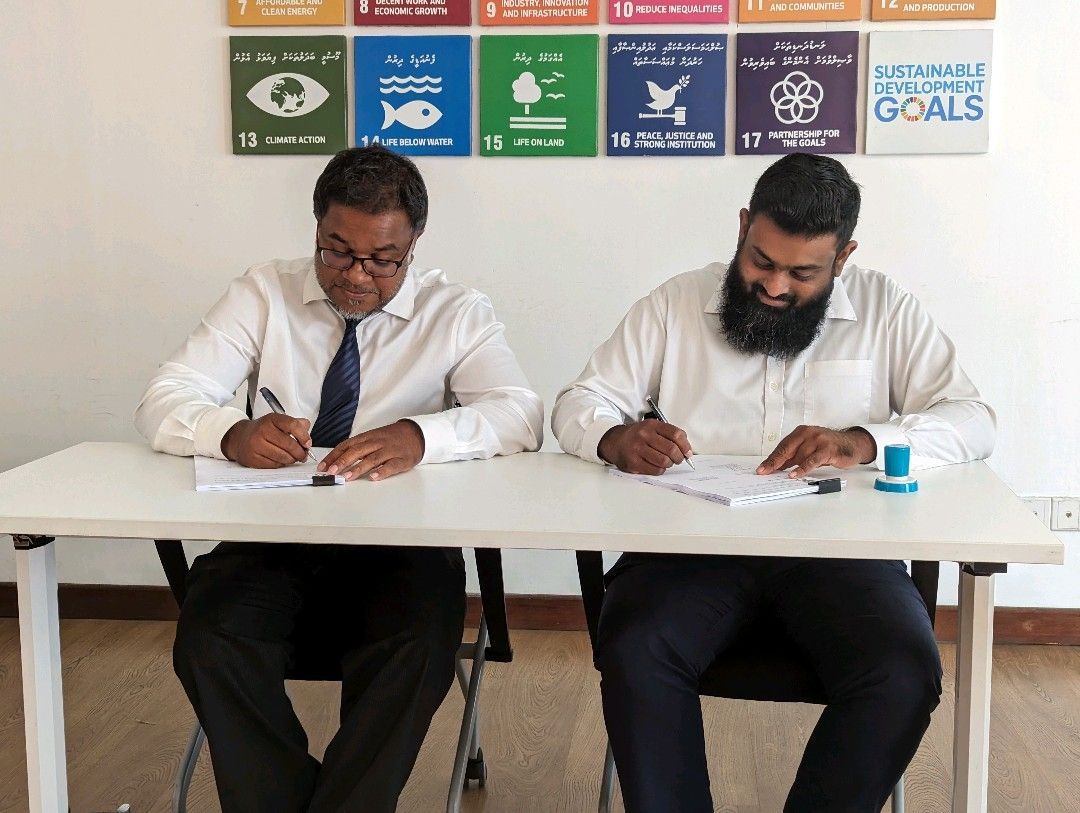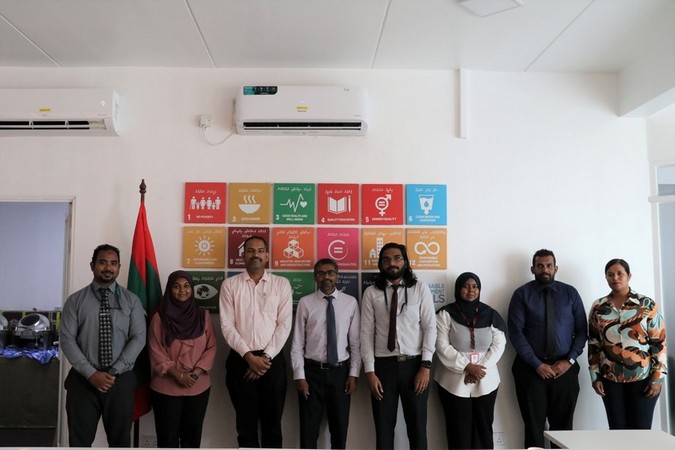Introduction:
The Maldives is one of the most vulnerable countries for adverse impacts of global climate change. Maldives’ Nationally Determined Contribution (NDC) highlights food security, critical infrastructure, public health, water security, coastal protection, and coral reef biodiversity as key vulnerabilities of the country. In addition to these vulnerabilities, Maldives, like other Small Island Developing States (SIDS), face specific developmental challenges. They include high transportation and logistical costs, exploitation of natural resources, poor management of waste and pollution, and a small population leading to unsustainable economies of scale for different development agendas. Furthermore, the economy of the country is highly dependent on the tourism and fisheries which are highly susceptible to external shocks.
Maldives as a party to the United Nations Framework Convention on Climate Change (UNFCCC) prioritize establishment of a Measuring, Reporting and Verification (MRV) system to meet the transparency requirement of the Paris Agreement. Maldives have periodically submitted relevant GHG information to the UNFCCC; for instance, three inventories were submitted so far as part of the First and Second National Communications and the First Biennial Update Report, specifying mitigation actions to be developed and implemented in the coming years.
The Maldives is committed to meet the requirements of the ETF, despite the flexibility provided for SIDS. There is need, therefore, for the Maldives to
(i) establish a permanent institutional arrangement for GHG inventory compilation and tracking of NDC commitments,
(ii) develop a centralized climate data management system for GHG data, tracking of mitigation actions, adaptation actions and support received and needed and (iii) develop tools and train experts to meet the enhanced transparency framework under the Paris Agreement.
The project is funded by the Global Environment Facility (GEF) with UN Environment acting as the GEF Implementing Agency and Ministry as the Executing Agency.
Project Objective:
To strengthen institutional capacity for tracking mitigation and adaptation actions and establish climate finance tracking system in the Maldives.
Project outcome:
- The Maldives is able to regularly compile consistent and accurate sectorial GHG inventories to regularly report to UNFCCC
- Maldives tracks and report transparently its mitigation and adaptation actions, as well as support for implementation, to UNFCCC and inform its climate policy/action development
Partners involved:
- Climate Change Department of the Ministry
- Energy Department of the Ministry
- Pollution prevention and waste management department of the Ministry
- Water and Sanitation Department of the Ministry
- Coastal Protection and Disaster Risk Section, Environment Department of the Ministry
- Ministry of National Planning, Housing & Infrastructure
- Ministry of Finance and Treasury
- Ministry of Tourism
- Ministry of Transport and Civil Aviation
- Ministry of Fisheries, Marine Resources and Agriculture
- Health Protection Agency (HPA)
- Maldives Meteorological Service (MMS)
- Utility Regulatory Authority (URA)
- Environmental Protection Agency (EPA)
- National Bureau of Statistics (NBS)
- Maldives National University (MNU)
- Civil Society Organization
- Private sector


